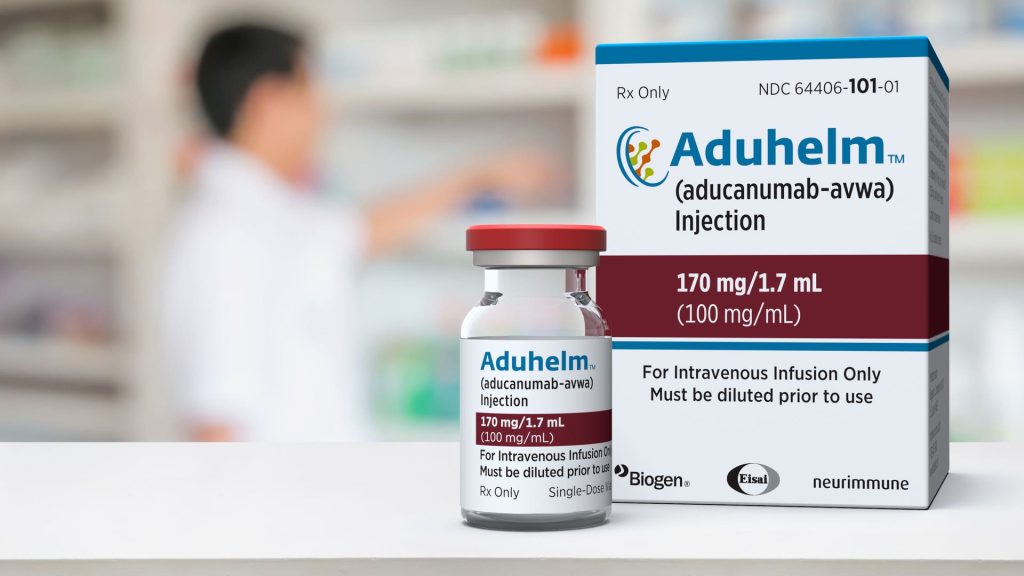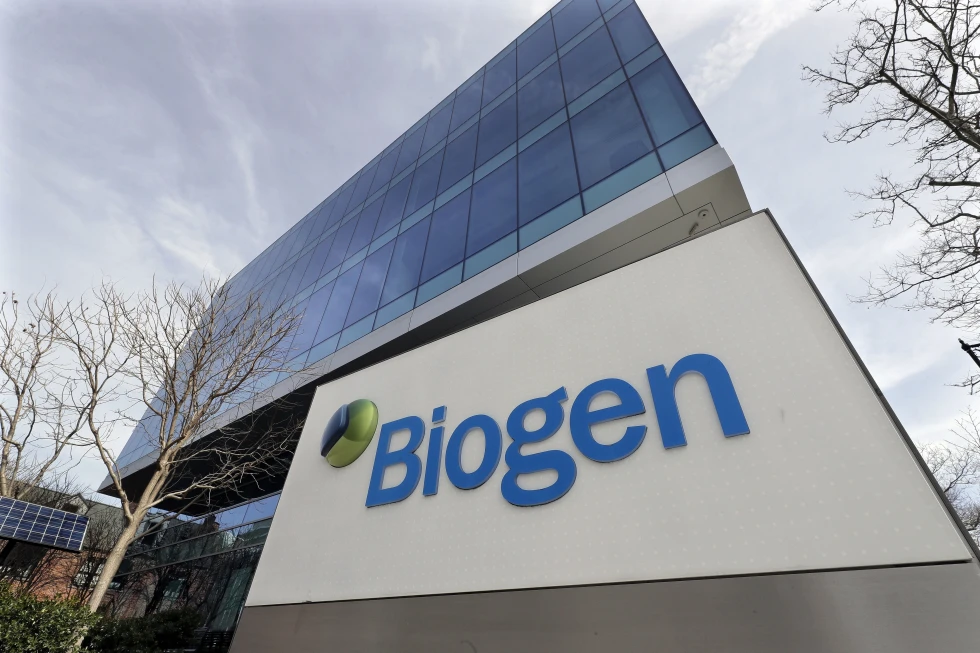Biogen’s decision to discontinue the sale of its Alzheimer’s treatment Aduhelm marks a significant development in the pharmaceutical industry.
Once hailed as a potential blockbuster drug, Aduhelm faced challenges following its launch a few years ago, ultimately leading to the company’s decision to pull it from the market.
Additionally, Biogen announced that it will terminate a study of the drug that was necessary for full approval from the Food and Drug Administration (FDA).
Patients currently taking doses of Aduhelm available through the commercial market will be able to continue their treatment until November.
According to a company representative, there are approximately 2,500 people worldwide who are currently taking Aduhelm.
Biogen has stated that it will now shift its focus to other treatments for Alzheimer’s disease, a devastating illness that robs individuals of their cognitive abilities.
The company is also collaborating with Japanese drugmaker Eisai to market another Alzheimer’s treatment called Leqembi, which received full FDA approval last summer.
Leqembi represents a significant advancement in the field of Alzheimer’s treatment, as it is the first medicine to convincingly demonstrate the ability to slow the cognitive decline caused by the disease, albeit to a modest extent.
Regulators have approved Leqembi for patients with mild dementia and other symptoms caused by early Alzheimer’s, offering hope to those affected by this debilitating condition.
The debut of Aduhelm in 2021 was a highly anticipated event, as it marked the first new Alzheimer’s drug to be introduced in nearly two decades.
The FDA granted accelerated approval for Aduhelm, but mandated the completion of an additional study for full approval, which would have potentially led to broader insurance coverage for the drug.
Biogen’s decision to discontinue the sale of Aduhelm and shift its focus to other treatments for Alzheimer’s disease reflects the company’s commitment to addressing the unmet medical needs of patients.
While the withdrawal of Aduhelm may come as a disappointment to some, the continued development and availability of treatments such as Leqembi offer renewed hope for individuals and families affected by Alzheimer’s disease.
In conclusion, the pharmaceutical industry continues to grapple with the challenges of developing effective treatments for Alzheimer’s disease.
Biogen’s decision to halt the sale of Aduhelm and refocus its efforts on other treatments underscores the complexities and uncertainties involved in the development and commercialization of drugs for neurodegenerative diseases.
As research and development in this field continue to advance, it is essential for pharmaceutical companies to remain dedicated to the pursuit of innovative and impactful treatments for Alzheimer’s disease and other related conditions.
The pharmaceutical industry has long been a battleground of innovation, regulation, and commercial success.
In recent years, the emergence of Aduhelm, a drug designed to alter the trajectory of Alzheimer’s disease, has sparked intense debate and scrutiny.
Marketed as a groundbreaking treatment promising to slow disease progression rather than merely managing symptoms, Aduhelm’s journey has been marked by high expectations, financial projections, regulatory challenges, and ultimately, a dramatic reversal of fortune.
This essay aims to delve into the rise and fall of Aduhelm, exploring the complexities surrounding its development, approval, commercialization, and subsequent setbacks.
When Aduhelm entered the market with an initial price tag of $56,000 per year, it was heralded as a potential game-changer in the treatment of Alzheimer’s disease.
Analysts and industry experts anticipated that the drug would swiftly ascend to blockbuster status, generating substantial revenue for its manufacturer, Biogen.
The federal government’s Medicare program, in anticipation of a surge in Aduhelm claims, adjusted its premium rates, reflecting the profound impact the drug was expected to have on healthcare expenditure.
Despite the lofty expectations, Aduhelm encountered significant hurdles. Physicians, citing limited evidence of its efficacy in improving the lives of Alzheimer’s patients, hesitated to prescribe the intravenous drug.
Insurers responded by either denying or restricting coverage, while Medicare, which had initially raised premiums, imposed stringent eligibility criteria for its beneficiaries.
These obstacles were particularly daunting for Biogen, given that the majority of Alzheimer’s patients in the United States are eligible for Medicare coverage due to their age.
Contrary to early projections, Aduhelm’s commercial performance fell far short of expectations, culminating in Biogen’s decision to largely cease its marketing efforts for the drug.
The company’s subsequent pursuit of external financing or partnerships to salvage Aduhelm proved futile, prompting a comprehensive review of its research and development program.
In the wake of this evaluation, Biogen acknowledged the formidable time and financial investment required for additional studies, as well as the likelihood of substantial advancements in the field before Aduhelm could attain full approval.
Amid the fallout from Aduhelm’s underperformance, the pharmaceutical landscape has not remained static. The emergence of potential alternative treatments, such as the drug under review by Eli Lilly and Co., has injected a new dimension of competition and anticipation into the industry.
Meanwhile, Biogen’s decision to terminate the Aduhelm program has led to a substantial financial charge, signaling the company’s acknowledgment of the drug’s diminished prospects and the need to recalibrate its strategic focus

The trajectory of Aduhelm serves as a cautionary tale within the pharmaceutical sphere, illustrating the intricate interplay of scientific innovation, regulatory scrutiny, commercial expectations, and the complexities of healthcare economics.
The rise and fall of Aduhelm underscore the pivotal role of evidence-based medicine, ethical considerations in drug marketing, and the imperative of aligning commercial ambitions with tangible patient benefits.
As the industry navigates the aftermath of Aduhelm’s tumultuous journey, it stands poised to learn invaluable lessons that will shape the future development and commercialization of pharmaceutical interventions.
In conclusion, the saga of Aduhelm encapsulates the multifaceted dynamics inherent in the pharmaceutical industry, offering profound insights into the interplay of scientific innovation, regulatory oversight, commercial imperatives, and patient care.
